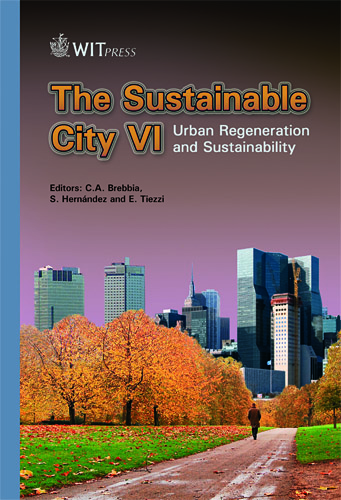Ecourbanistica: Toward A New Sustainable Town Planning
Price
Free (open access)
Transaction
Volume
129
Pages
11
Page Range
29 - 39
Published
2010
Size
432 kb
Paper DOI
10.2495/SC100031
Copyright
WIT Press
Author(s)
R. Fistola
Abstract
A social conscience about what is going on in relation to climate changes, global warning, urban pollution, water emergencies, the municipal solid waste problem and, in general, future urban scenarios seem to be quite widespread in large segments of the population. The city, where in a few years about 75% of the world’s population will settle, represents one of the main entropic systems, in particular because of the location of climate-altering and pollutant activities. This awareness has generated an ethic change, a radical transformation of the methods of action and interaction between man and the environment and between citizens and the urban environment. The attention to sustainable urban development, participated urban planning, the consideration of territory as a non renewable resource, sustainable mobility and so on has also been characterizing the investigation in the field of urban and regional sciences. Moving from these assumptions it is now necessary to codify a new process of sustainable town planning that is able to indicate the real actions necessary within the city. This paper intends to describe this new process, called Ecourbanistica (Ecotownplanning), starting from the systemic approach to the city. Keywords: Ecourbanistica, Gaia hypothesis, complex system, new town planning, sustainable urban development, systemic approach, climate change, urban entropy, Mediterranean city, urban transformation management. 1 Gaia and Polis Considering the earth as a living organism capable of self-regulation, through the constant search for balance among its several components, represents the basic intuition of the \“Gaia hypothesis” worked out by James Lovelock in the 1960s.
Keywords
Ecourbanistica, Gaia hypothesis, complex system, new town planning, sustainable urban development, systemic approach, climate change, urban entropy, Mediterranean city, urban transformation management





